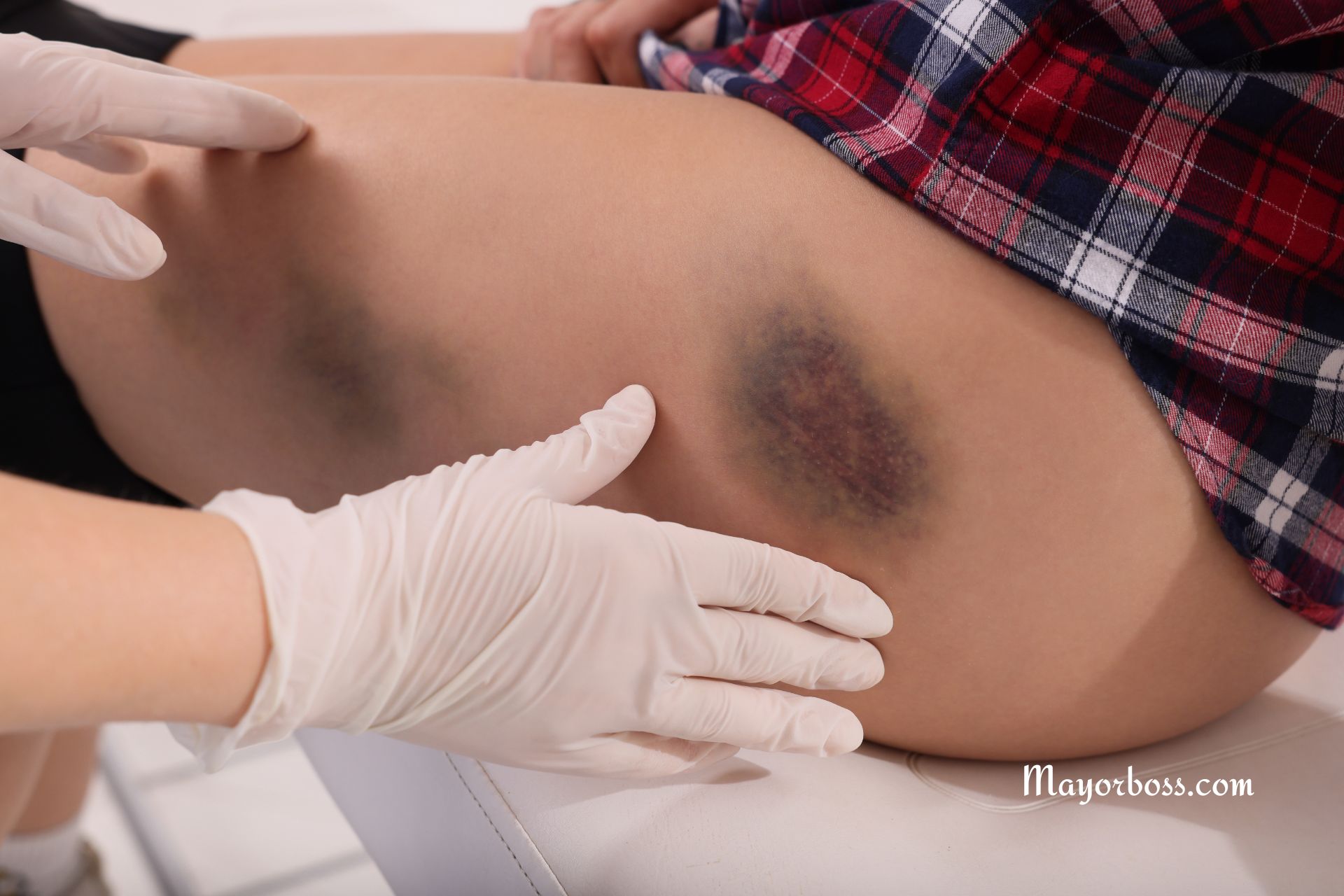5 Reasons You Bruise Easily (And When to See a Doctor)
Have you ever bumped into a table or chair and discovered a big, colorful bruise the next day? Or maybe you’ve seen friends who seem to bruise at the slightest touch. It might make you wonder why some people bruise more easily than others. If this sounds like you, you’re not alone in your curiosity!

What Is a Bruise?
A bruise, also known as a contusion, occurs when small blood vessels under your skin break due to an impact or injury. The blood leaks into the surrounding tissues, which creates that familiar black, blue, purple, or yellow mark on your skin.
Factors That Make You Bruise Easily
1. Skin Thickness and Age
As you age, your skin becomes thinner and loses some protective fatty layers that help cushion your blood vessels from injury. Consequently, it’s not uncommon for older adults to notice more bruises, even if the impact was minor. Similarly, people with naturally thinner skin might notice that they bruise more easily.
2. Gender Differences
Generally, women bruise more easily than men. This difference is partly because women typically have thinner skin, which offers less protection to blood vessels. Additionally, hormonal variations can also affect the strength of blood vessel walls, making them more prone to breaking.
3. Medications
Certain medications can also increase your likelihood of bruising. For example, if you take aspirin, anticoagulant medications, or anti-platelet agents, you might find that you bruise more easily. These medications affect the clotting process, thereby increasing the risk of blood leaking out of the vessels when they are injured.
4. Medical Conditions
Medical conditions that affect clotting factors or the blood vessels can also lead to frequent bruising. These include liver disease, kidney disease, and certain types of cancer. Vitamin deficiencies, particularly vitamins C and K, are also linked to increased bruising because these nutrients are vital for the health and recovery of blood vessels.
5. Genetics
Sometimes, the tendency to bruise easily runs in families. If your parents bruise easily, there’s a chance you might, too. This can be due to inherited traits that affect your skin’s thickness or the strength of your blood vessels.
How to Reduce Bruising
If you’re tired of sporting bruises, here are a few tips that might help:
- Protect Your Skin: Wearing long sleeves or padded clothing when engaging in activities where you might bump into things can help shield your skin.
- Review Your Medications: If you notice you’ve started bruising more since beginning a new medication, talk with your doctor. There might be alternative medications that do not have this side effect.
- Nutrition: Ensure you’re getting enough vitamins through your diet or supplements. Vitamins C and K are especially important for vascular and skin health.
When to See a Doctor
It’s generally not a concern to bruise occasionally, especially if you know why it happened. However, if you start to bruise very easily without any clear reason, it might be wise to consult with a doctor. Also, seek medical advice if you experience:
- Bruises that appear frequently without any injury
- Bruises that are very painful and take longer than usual to heal
- Unexplained bruising along with bleeding from your gums or nose
Frequently Asked Questions
1. Can diet affect how easily I bruise? Yes, your diet can influence bruising. A diet rich in Vitamin C and Vitamin K is essential for repairing your blood vessels and improving your skin’s health.
2. Is bruising serious? In most cases, bruising is not a sign of a serious problem. However, if you have frequent, large, or painful bruises, or if bruising occurs with no injury, you should see a healthcare provider.
3. How long does a typical bruise last? A bruise can last from a few days to a couple of weeks. It changes colors as it heals, usually moving from dark blue or purple to green, then yellow, before fading away completely.
